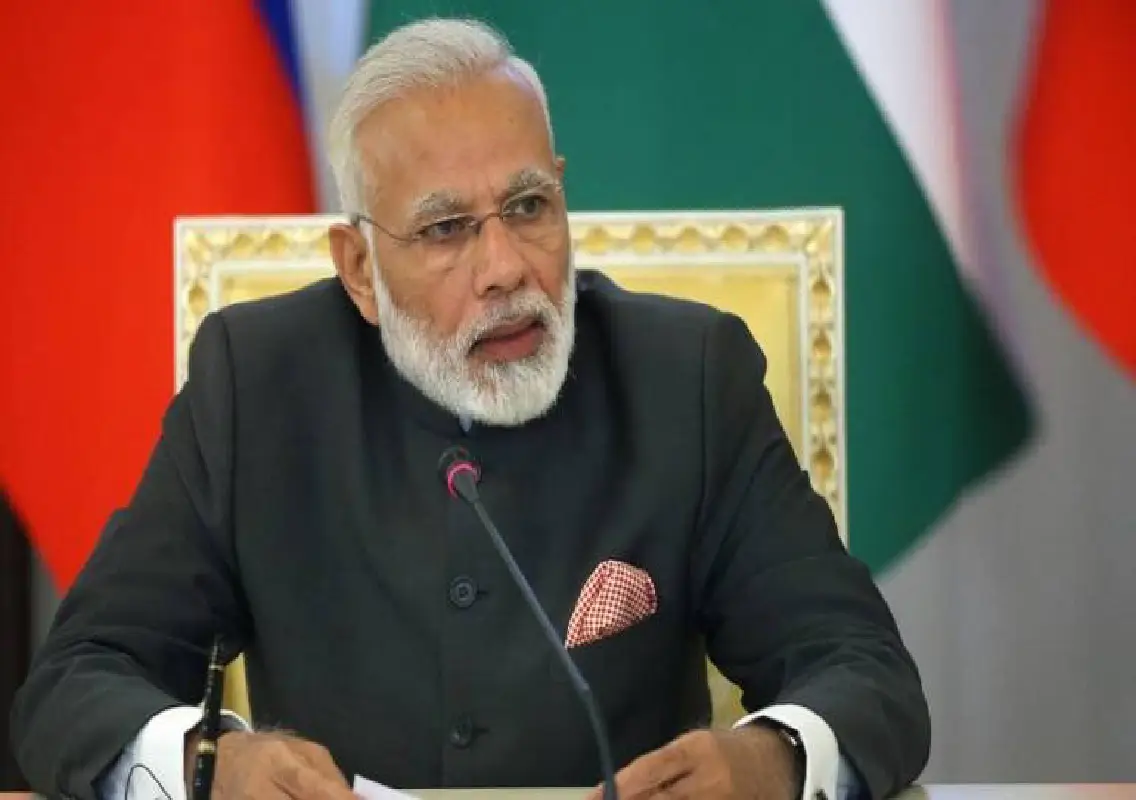By News Karnataka
Copyright newskarnataka

New Delhi (India): Prime Minister Narendra Modi on Sunday announced the rollout of next-generation Goods and Services Tax (GST) reforms, effective from September 22, calling it a landmark step in India’s economic transformation and a “festive gift” to citizens. Addressing the nation, PM Modi said the new system would usher in a “GST Bachat Utsav,” benefitting the poor, middle class, farmers, traders, entrepreneurs, and women alike.
A step towards Aatmanirbhar Bharat
PM Modi said the reforms mark a milestone under the Aatmanirbhar Bharat Abhiyan. “From the sunrise of the very first day of Navratri, the nation is taking another important and major step towards the Aatmanirbhar Bharat Abhiyan. Tomorrow, with the rising of Suryadev, the Next Generation GST Reforms will come into effect,” he said.
Calling the reforms a “festive gift,” the Prime Minister added that they would accelerate growth, attract investment, ease business processes, and ensure equal participation from all states in India’s development.
Key changes in GST structure
The reforms were approved during the 56th GST Council meeting earlier this month. The earlier four-slab system of 5%, 12%, 18%, and 28% has been replaced with a simplified two-slab structure of 5% and 18%. A separate 40% slab has been retained for luxury and sin goods.
This streamlining is expected to reduce consumer prices, strengthen manufacturing, widen the tax base, and lower the cost of living while easing compliance for businesses.
Impact across sectors
FMCG and dairy
Major FMCG brands like Amul and Mother Dairy have already announced price cuts. Amul butter (100g) will now cost ₹58, down from ₹62, while UHT milk prices have dropped to ₹75 per litre from ₹77. Paneer, cheese, ghee, snacks, and frozen foods have also been brought under the 5% slab.
Automobiles
The automobile sector is one of the biggest beneficiaries. Two-wheelers up to 350cc, small cars, and auto parts will now attract 18% GST instead of 28%. Tractors under 1800cc move to the 5% slab, while buses and commercial vehicles will be taxed at 18%. These changes are expected to boost sales, support gig workers and farmers, and create employment across the automotive chain.
Housing and construction
Cement, previously in the 28% bracket, has been reduced to 18%. Materials like granite blocks, marble, and sand-lime bricks are now under the 5% slab, making housing and infrastructure development more affordable.
Agriculture
Farm equipment including harvesters, threshers, sprinklers, and drip irrigation systems will now attract only 5% GST, easing costs for farmers and supporting rural economies.
Healthcare and pharmaceuticals
Over 30 life-saving drugs and diagnostic kits have been exempted from GST, while essential medicines, including Ayurvedic and Unani formulations, will be taxed at just 5%. Devices like thermometers and glucometers have also been moved to the lower bracket, making healthcare more affordable.
Hotel stays up to ₹7,500 per day now attract 5% GST instead of 12%. Rates for gyms, salons, yoga centres, and barbers have fallen from 18% to 5%. In education, items like pencils, crayons, erasers, and notebooks are fully exempt, while geometry boxes now fall under 5%.
Textile and handicrafts
The inverted duty structure on man-made fibres has been corrected, with GST on yarn and fibres reduced to 5%. This reform is expected to revive the textile and handicraft industries.
Renewable energy
GST on renewable energy equipment and components has been cut from 12% to 5%, reducing capital costs of large-scale solar projects by ₹20–25 lakh per megawatt. For a 500 MW project, this translates into savings of ₹100 crore, which could lower power tariffs for households and businesses.
Everyday essentials and luxury goods
The government confirmed that GST on soaps, shampoos, and packaged foods is now 5%, while appliances like air-conditioners and large televisions fall under the 18% bracket. However, luxury and sin goods such as tobacco, pan masala, high-end motorcycles, yachts, and aerated drinks remain at the 40% slab, along with a compensation cess.
PM Modi said the reforms mark a turning point for India’s economic future, ensuring that both citizens and industries benefit. “During this festive season, everyone will have reason to celebrate, and the happiness of every family in the country will grow,” he said, calling the changes a new chapter in India’s growth story.



